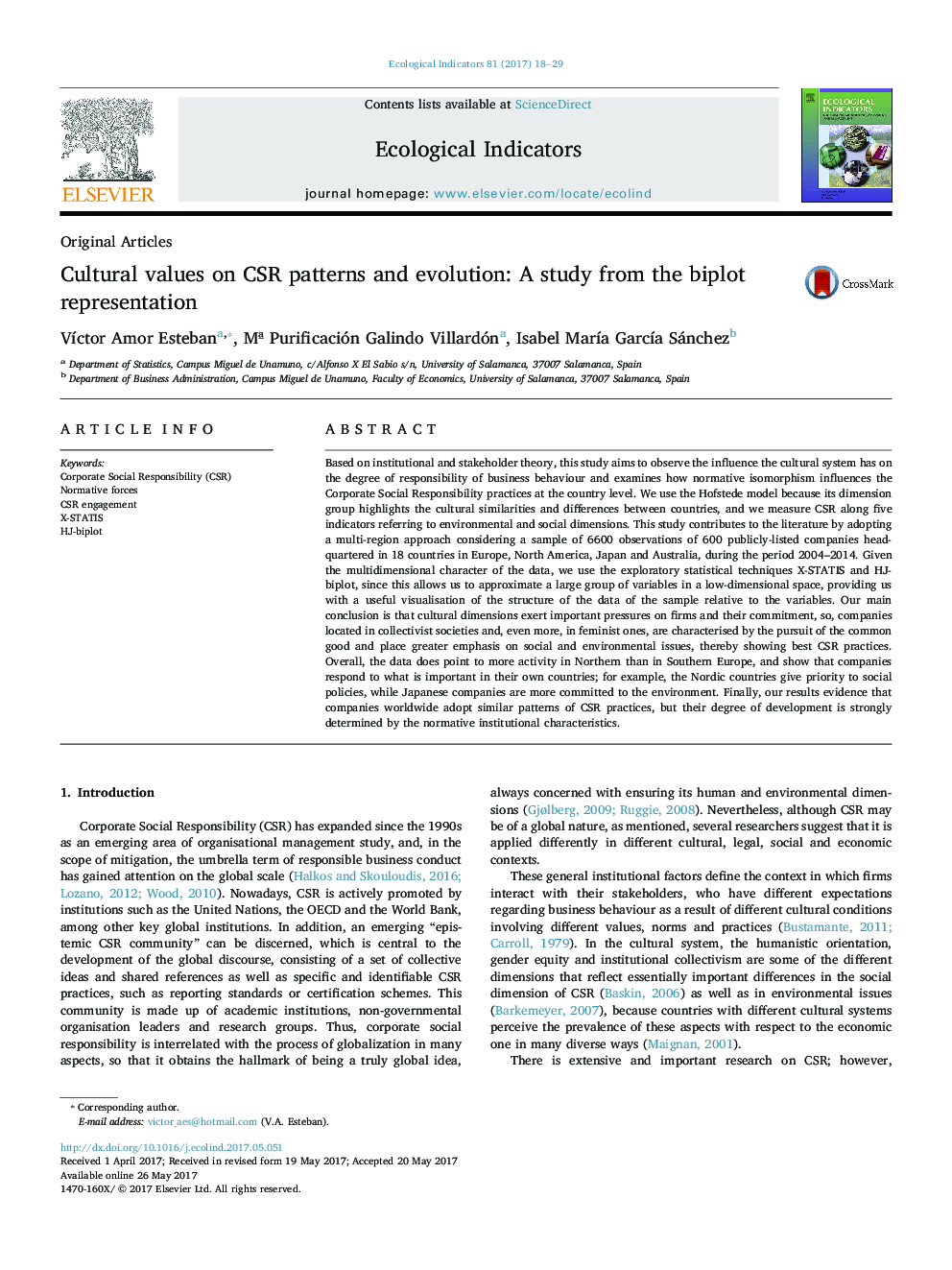| Article ID | Journal | Published Year | Pages | File Type |
|---|---|---|---|---|
| 5741406 | Ecological Indicators | 2017 | 12 Pages |
â¢The influence the cultural system has on the degree of responsibility of business behaviour and patterns is studied.â¢The methodology is based on Hofstede model and multivariate statistical methods.â¢Companies worldwide adopt similar patterns of CSR practices, but their degree of development is strongly determined by the normative institutional characteristics.â¢Companies located in collectivist societies and, even more, in feminist ones, are characterised by the pursuit of the common good and place greater emphasis on sustainable issues.
Based on institutional and stakeholder theory, this study aims to observe the influence the cultural system has on the degree of responsibility of business behaviour and examines how normative isomorphism influences the Corporate Social Responsibility practices at the country level. We use the Hofstede model because its dimension group highlights the cultural similarities and differences between countries, and we measure CSR along five indicators referring to environmental and social dimensions. This study contributes to the literature by adopting a multi-region approach considering a sample of 6600 observations of 600 publicly-listed companies headquartered in 18 countries in Europe, North America, Japan and Australia, during the period 2004-2014. Given the multidimensional character of the data, we use the exploratory statistical techniques X-STATIS and HJ-biplot, since this allows us to approximate a large group of variables in a low-dimensional space, providing us with a useful visualisation of the structure of the data of the sample relative to the variables. Our main conclusion is that cultural dimensions exert important pressures on firms and their commitment, so, companies located in collectivist societies and, even more, in feminist ones, are characterised by the pursuit of the common good and place greater emphasis on social and environmental issues, thereby showing best CSR practices. Overall, the data does point to more activity in Northern than in Southern Europe, and show that companies respond to what is important in their own countries; for example, the Nordic countries give priority to social policies, while Japanese companies are more committed to the environment. Finally, our results evidence that companies worldwide adopt similar patterns of CSR practices, but their degree of development is strongly determined by the normative institutional characteristics.
